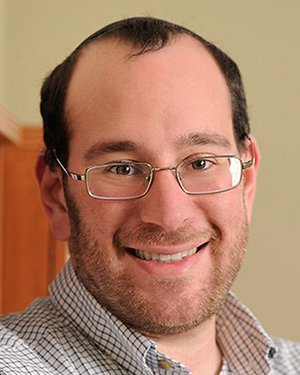Research Lab Results
-
Paul Worley Lab
The Paul Worley Lab examines the molecular basis of learning and memory. In particular, we cloned a set of immediate early genes (IEGs) that are rapidly transcribed in neurons involved in information processing, and that are essential for long term memory. IEG proteins can directly modify synapses and provide insight into cellular mechanisms that support synapse-specific plasticity. -
David Linden Lab
The David Linden Laboratory has used both electrode and optical recording in cerebellar slice and culture model systems to explore the molecular requirements for induction and expression of these phenomena. Along the way, we discovered a new form of plasticity. In addition, we have expanded our analysis to include use-dependent synaptic and non-synaptic plasticity in the cerebellar output structure, the deep nuclei. Our investigations are central to understanding the cellular substrates of information storage in a brain area where the behavioral relevance of the inputs and outputs is unusually well defined. In addition, our investigations have potential clinical relevance for cerebellar motor disorders and for disorders of learning and memory generally.
-
Vikram Chib Lab
The goals of the Vikram Chib Lab are to understand how the nervous system organizes the control of movement and how incentives motivate our behaviors. To better understand neurobiological control, our researchers are seeking to understand how motivational cues drive our motor actions. We use an interdisciplinary approach that combines robotics with the fields of neuroscience and economics to examine neuroeconomics and decision making, motion and force control, haptics and motor learning, image-guided surgery and soft-tissue mechanics. -
Neuro-Oncology Surgical Outcomes Laboratory
Directed by Debraj “Raj” Mukherjee, MD, MPH, the laboratory focuses on improving access to care, reducing disparities, maximizing surgical outcomes, and optimizing quality of life for patients with brain and skull base tumors.
The laboratory achieves these aims by creating and analyzing institutional and national databases, developing and validating novel patient-centered quality of life instruments, leveraging machine learning and artificial intelligence platforms to risk-stratify vulnerable patient populations, and designing novel surgical trials to push the boundaries of neurosurgical innovation.
Our research also investigates novel approaches to improve neurosurgical medical education including studying the utility of video-based surgical coaching and the design of new operative instrumentation.
-
Mark Dredze Lab
The Mark Dredze Lab investigates topics such as natural language processing, speech, machine learning and intelligent user interfaces. Our team is currently exploring several key health information applications, including information extraction from social media and biomedical and clinical texts. Our recent research in these areas include vaccine communication during the Disneyland measles outbreak; the validity of online drug forums for estimating trends in drug use; and the use of Twitter to examine social rationales for vaccine refusal.
Principal Investigator
-
Suchi Saria Lab
The Suchi Saria Lab, part of the Institute for Computational Medicine, explores topics within the fields of machine learning and computational statistics, with a focus on computational solutions for problems in health informatics. Our team investigates the applications of machine learning and computational statistics to domains where one has to draw inferences from observing a complex, real-world system evolve over time. We use Bayesian and probabilistic graphical modeling approaches to address the challenges that emerge with modeling and prediction in real-world temporal systems.
Principal Investigator
-
Motion Analysis Laboratory
Our team is focused on understanding how complex movements are normally learned and controlled, and how damage to specific brain areas impairs these processes. We employ several techniques to quantify movement including: 3-dimensional tracking and reconstruction of movement, recordings of muscle activity, force plate recordings, and calculation of joint forces and torques. These techniques allow for very precise measurements of many different types of movements including: walking, reaching, leg movements, hand movements and standing balance. All studies are designed to test specific hypotheses about the function of different brain areas, the cause of specific impairments and/or the effects of different interventions. -
Albert Lau Lab
The Lau Lab uses a combination of computational and experimental approaches to study the atomic and molecular details governing the function of protein complexes involved in intercellular communication. We study ionotropic glutamate receptors (iGluRs), which are ligand-gated ion channels that mediate the majority of excitatory synaptic transmission in the central nervous system. iGluRs are important in synaptic plasticity, which underlies learning and memory. Receptor dysfunction has been implicated in a number of neurological disorders. -
Bakker Memory Lab
Research in the Bakker Memory Laboratory is focused on understanding the mechanisms and brain networks underlying human cognition with a specific focus on the mechanisms underlying learning and memory and the changes in memory that occur with aging and disease. We use a variety of techniques including neuropsychological assessments, experimental behavioral assessments and particularly advanced neuroimaging methods to study these questions in young and older adults and patients with mild cognitive impairment, Alzheimer’s disease, Parkinson’s disease and epilepsy. Through our collaborations with investigators in both basic science and clinical departments, including the departments of Psychiatry and Behavioral Sciences, Psychological and Brain Sciences, Neurology and Public Health, our research also focuses on brain systems involved in spatial navigation and decision-making as well as cognitive impairment in neuropsychiatric conditions such as schizophrenia, eating disorders, obsessive-compulsive disorders, depression and anxiety. -
Diane Griffin Lab
Research in the Diane Griffin Lab focuses on the viral, cellular and immunologic determinants of diseases caused by alphaviruses and the measles virus. Our current studies aim to understand the immune-system mechanisms behind viral clearance and disease enhancement. Our team is also working to understand the pathogenesis of the measles virus, with a focus on developing new vaccines and learning how the virus induces immunosuppression.




